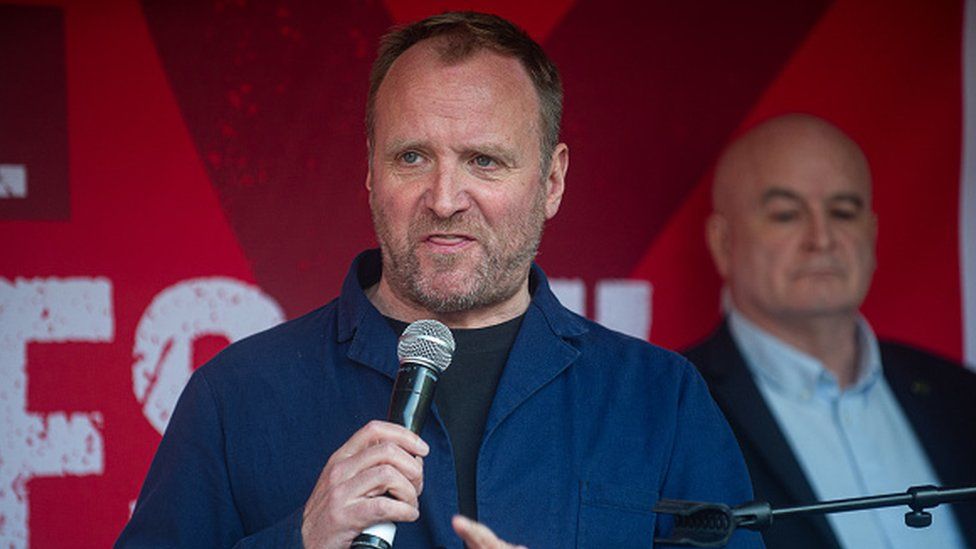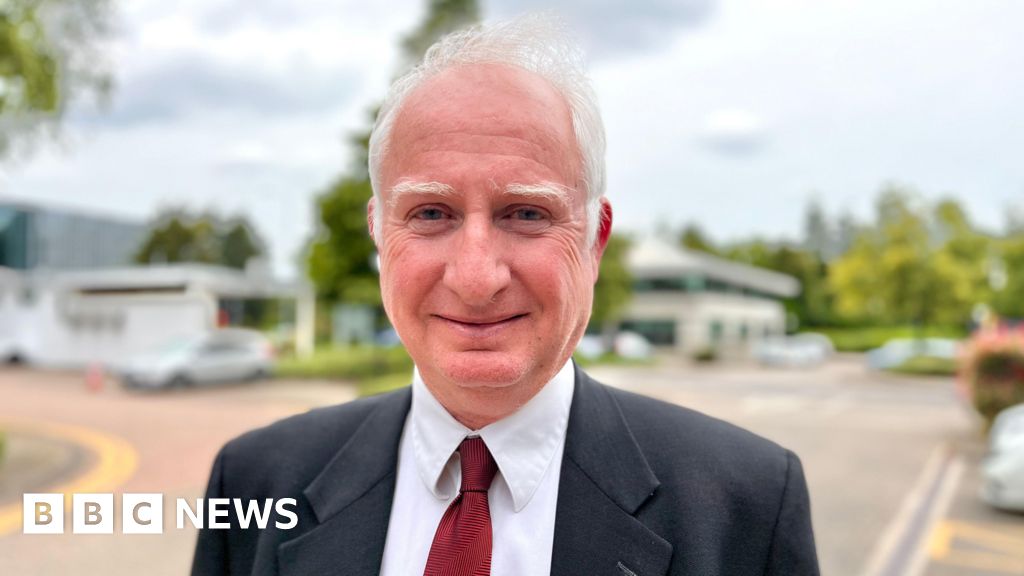ARTICLE AD BOX
 Image source, Getty Images
Image source, Getty Images
Gary Smith said it would be "a huge mistake to put all the nation's eggs in one energy basket"
By Joshua Nevett
BBC Politics
The boss of one of Labour's biggest union donors has branded the party's plan to ban new oil and gas production in the North Sea "a huge mistake".
Gary Smith, the GMB union's general secretary, said energy plans should be built around "decent jobs", not bans.
Labour has pledged to block all new domestic oil and gas developments and invest in renewables if it wins power.
But in a speech, Mr Smith said "our future requires a mix of energy sources", including oil and gas.
"It would be a huge mistake to put all the nation's eggs in one energy basket," Mr Smith told the union's annual conference Brighton.
Earlier on Monday, during a visit to the Hinkley Point C nuclear power station in Somerset, Labour leader Sir Keir Starmer had sought to reassure trade union critics that his party's energy plans would not lead to job losses.
Over the weekend, Mr Smith and the Unite union - another key financial backer for Labour - expressed concerns about party's energy policies and their impact on jobs - and accused the party of being "naive".
But Sir Keir said Labour would allow existing North Sea projects to continue until 2050, meaning "oil and gas will be part of our energy mix for many, many years to come".
"But we need to seize the opportunities for the next generation of jobs," Sir Keir said. "And that is in renewables, it is in nuclear."
The party's flagship economic policy is a £28bn a year "green prosperity plan", which aims to create jobs in new green industries and set up a publicly owned renewable energy company.
Dividing line
Energy - namely lowering household bills while hitting climate targets - has become a major dividing line in British politics as the next general election draws closer.
Prime Minister Rishi Sunak's government has been under pressure to pour more investment into clean energy to catch up with the United States and other large economies.
He is facing calls to come up with the UK's equivalent to US President Joe Biden's Inflation Reduction Act, which has allocated $370bn (£297bn) for investments in green energy.
Mr Sunak's government has backed further oil and gas exploration to "minimise our reliance on overseas imports" in its energy security strategy.
But last year, the Climate Change Committee, which advises the government, said the best way to reduce the UK's exposure to volatile energy prices was to cut fossil fuel consumption.
"Any increases in UK extraction of oil and gas would have, at most, a marginal effect on the prices faced by UK consumers in future," the committee said.
The Labour leader is expected to formally set out his party's energy policy as one of its five national missions in Scotland this month.
Ahead of that speech, leading environmental and social justice organisations have urged Sir Keir to stick to his pledge on banning new oil and gas production.
They did so in an open letter signed by 144 organisations, including WWF, Save the Children, Oxfam, and Greenpeace.
One part of Labour's energy plans involves boosting nuclear power which, Sir Keir said, the Conservatives had held back during 13 years of power.
His party claims the Tory government's failure to open any of the 10 nuclear sites approved under the last Labour government has cost 7,000 British jobs.
Labour says it would complete existing projects - such as Hinkley Point C - and identify opportunities for new nuclear.
In response to these criticisms, the Conservative Party said the last Labour government had "cut the legs off Britain's nuclear industry" by failing to back new projects for much of the time it was in office.
"The Conservatives started turning that around, delivering the first large-scale nuclear project Hinkley Point C and agreeing last year to begin Sizewell C," a Tory spokesman said.

 1 year ago
27
1 year ago
27








 English (US)
English (US)